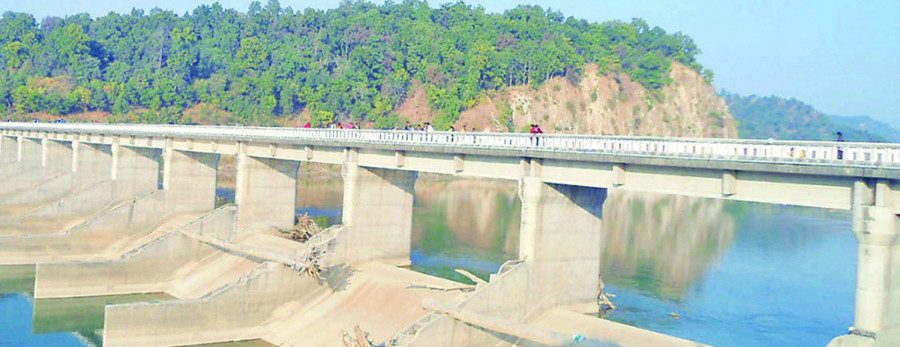National
State-owned construction company may be hired to complete unfinished projects
Formation of a new company after the demise of a similar one due to political intervention raises questions.
Prithvi Man Shrestha
The government wants to employ its own company to complete parts of infrastructure projects left unfinished by contractors with which the public entity terminates the contract for poor performance.
Nepal Infrastructure Company Limited, established in July 2019, will get the task if the proposed amendment to the Public Procurement Act-2007 is endorsed by both chambers of Parliament.
The government has registered the Some Nepal Acts Amendment Bill, which includes proposed revisions to the Public Procurement Act.
According to government officials, the company is currently carrying out various studies in the infrastructure sector but has not been involved in construction in the absence of a legal mandate. Amendment to the Public Procurement Act will empower it to engage in construction works too.
The proposed amendment says that the chief of the public entity concerned can take responsibility for implementing the part of the task left unfinished by the contractor and award the task up to a specified cost to the government-owned company.
“A contract should be signed with the company to complete the project by setting a deadline,” the proposed amendment states. “The Infrastructure Company should complete the assigned task and any other supplier, consultant service provider or contractor cannot be hired for the purpose.”
The Infrastructure Company Limited can also be used for carrying out construction works in special circumstances. If the occurrence of a special circumstance results in the situation where the public entity will sustain further losses, the public entity can hire the company to carry out the work urgently.
“The company was established with the aim of completing unfinished projects due to contract termination,” said Arjun Jung Thapa, joint-secretary at the Ministry of Physical Infrastructure and Transport. “Such a company is important and is employed to do work honestly as many state-owned construction companies are active in neighbouring India and China too.”
In the past, companies such as the National Construction Company Nepal (NCCN), a government undertaking, existed but they failed miserably due to political intervention, according to officials. The company no longer exists.
Thapa said that the company was made a medium to provide contracts to the preferred contractors. “For example, the leaders used to provide certain contracts to the NCCN which would later be subcontracted to the private contractors favoured by the leaders,” he said. “It had discouraged competition among private contractors to get the contract as firms sought to get favour of the leaders to get sub-contracts through the NCCN.”
The contractors also doubt whether the formation of the government-owned entity would help to solve the problem.
“Instead, there is a risk that such a company could turn into a centre of corruption,” Rabi Singh, president of the Federation of Contractors’ Association of Nepal, said, referring to the NCCN.
According to him, the NCC had been used as an entity to subcontract the project to the leaders’ preferred contractors. The political leaders used to make such an arrangement that officials at the NCCN used to estimate higher costs for implementing some construction projects and the NCCN used to hire subcontractors as desired by the leaders in exchange for a commission for the leaders.




 22.11°C Kathmandu
22.11°C Kathmandu














